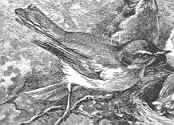Link:
http://www.youtube.com/watch?v=uJfmuVWMVnQ
However, as noted here:
http://anunslife.org/2006/09/20/saint-teresa-of-avila-prayer/#comment-260
the attribution to St. Teresa seems mistaken. I have yet to find anything like them in scholarly editions of St. Teresa's works. I have yet to meet anyone who can give a citation to any attested words of St. Teresa that can be the source of this poem.
So I tried tracing the words themselves. For now, at least, I believe the poem to be a work of cumulative authorship, like the text of "Hark the Herald Angels Sing" that is found in the Episcopal Church's Hymnal 1982. In the case of "Christ has no body now but yours", the work is principally by two authors: Methodist minister Mark Guy Pearse (1842-1930), and Quaker medical missionary Sarah Elizabeth Rowntree (dates unknown.) But the poem circulates in various versions which also show minor adjustments by others.
In my present reconstruction (which may change as I gain additional information) the Rev. Mr. Pearse is responsible for the second half of the poem. He spoke as follows in a sermon delivered on January 3rd, 1888, in Steinway Hall, Portman Square, London:
Now you, my brothers and sisters, are the eyes through which Christ's compassion is to look out upon this world, and yours are the lips through which His love is to speak; yours are the hands with which He is to bless men, and yours the feet with which He is to go about doing good--through His Church, which is His body.Pearse cites no sources for his words other than, of course, the Bible.
--Evangelical Christendom, v. 42, February 1st, 1888, p. 46
A few years later Sarah Elizabeth Rowntree used Mr. Pearse's words, which she acknowledged to be his, and to which she added the first half of the poem. Here is the report from the Quaker periodical The British Friend
Sarah Eliza Rowntree gave an interesting account of the recent establishment of the "Home" in Pearl Street, and the progress of the Mission there. She appealed for more workers to assist its further usefulness, concluding with some words of Mark Guy Pearse, "Remember Christ has no human body now upon the earth but yours; no hands but yours; no feet but yours. Yours, my brothers and sisters, are the eyes through which Christ's compassion has to look upon the world, and yours are the lips with which His love has to speak. Yours are the hands with which He is to bless men now, and yours the feet with which He is to go about doing good through His Church which is His body."Around the same time John Wilhelm Rowntree (1868-1905) (I suspect a cousin of Sarah Elizabeth's though I cannot yet confirm it) used the words in a sermon on "The Place of Religion in Modern Life". In the outline for this sermon that was published posthumously in 1906, the piece stood as follows:
--The British Friend, volume 1, number 1, 1892, p. 15
Remember Christ has now no human body upon earth but yours; no hands but yours, no feet but yours. Yours are the eyes through which His compassion is to look upon the world, yours are the lips through which His love is to speak, yours are the hands with which He is to bless, and yours the feet with which He is to go about doing good--through the church which is His body.John Wilhelm's notes contain no attribution, either to Pearse or to Sarah Elizabeth, or to anyone else. John Wilhelm's words also differ in a few details from Sarah Elizabeth's, making him possibly the first of many who have adapted the text over the decades.
--from "The Place of Religion in Modern Life" (notes for a sermon), in Joshua Rowntree, ed., Palestine Notes and Other Papers by John Wilhelm Rowntree, Hadley Brothers, London, 1906, p. 106.
Update:It is of course possible that it was John Wilhelm (or even someone else) who added the first part to Mr. Pearse's words. But Sarah Elizabeth remains the first one on record to have spoken the whole poem in something like the form it now has.
I might as well end with something that St. Teresa did write. Or at least, she is said to have had it on a bookmark in her breviary, and the scholars seem to have accepted it has her work.
Letrilla
Nada te turbe,
nada te espante;
todo se pasa.
Dios no se muda.
La paciencia
todo lo alcanza.
Quien a Dios tiene,
nada le falta;
solo Dios basta.

